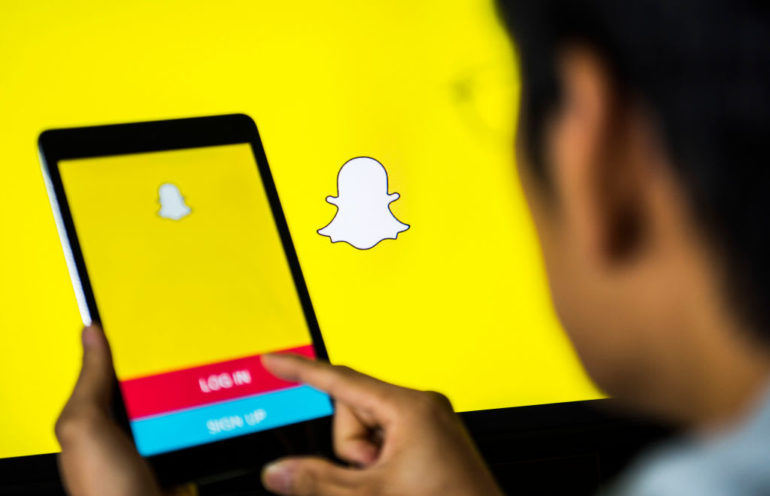Though the advertising market took a major tumble earlier this year due to the pandemic, the sector is making a recovery — and Snap wants advertisers to see it as a place where they’re getting their money’s worth.
Snap, which plans on Tuesday at Advertising Week to unveil new celebrity docuseries and roll out a way for advertisers to buy the first advertisement a user sees in a day on the platform, would only share its second-quarter figures ahead of a forthcoming third-quarter earnings announcement on Oct. 20. But its VP of Americas, Peter Naylor, said the platform is seeing many advertisers returning to normal.
“We’re feeling a lot of momentum, particularly around what I call accountable ads, you know, performance-oriented ads, because advertisers do want to get back and they are getting back into the groove,” he told CNBC last week. “They have to drive their businesses, and advertising drives their businesses.”
As pandemic-related impacts started to cut advertiser budgets with big tech companies early this year, those performance-oriented, or direct-response (DR) ads, stayed stronger than other forms of advertising. That DR advertising includes methods that drive consumers to take an immediate action, like download an app or buy something from an e-commerce site, whereas brand advertising typically communicates more what a company is about or what it does, rather than try to drive immediate sales.
“Everybody wants measurement, everybody wants some way to prove that the dollar spent is a dollar well invested,” Naylor said. “That’s been leading us through, on certain days, ever since the pandemic.”
Advertisers were also turning to Snap to use augmented reality for virtual “try-ons” as dressing rooms at many retailers remain closed and there are new precautions around sampling products like makeup. Beauty company Sally Hansen in August rolled out a Snapchat lens to allow users to try out different nail colors, for instance, while Champs Sports offered virtual try-ons of its sneakers.
And while Snap warned while reporting its second-quarter earnings that uncertainty around events like the back-to-school season and the operations of sports leagues in the third quarter could impact advertising demand, anecdotally it saw advertisers rethinking their strategies.
“We saw back-to-school, the message kind of shift, whether you’re going back to school, or going back to school at home, so they shifted their creative message,” he said. Retailers like American Eagle and PacSun used augmented reality offerings for back-to-school campaigns.
Naylor said retailers were also turning to a new “dynamic” ad offering that lets retailers upload a product catalog to Snap that’s shown to relevant users. If a product’s price or availability changes, the ads can automatically update in real time.
“That’s one way that they’re dealing with state-by-state openings, by figuring out which products and services to serve to the audience using hundreds and hundreds of ad creatives,” Naylor said.
Aaron Goldman, chief marketing officer at advertising software company Mediaocean, said spend on its platform from advertisers in September was up triple-digits over last year on Snap.
“Whether it’s back-to-school or the run-up to holiday season, they’re firing on all cylinders,” he said.
Digital rebound
Though the major digital ad-supported tech companies are yet to report their third-quarter earnings, results are expected to show a recovery.
In a UBS analyst note last week, analysts wrote that digital ad spend continues to improve from March and April lows, but with large skews when it pertains to e-commerce. “[E-Commerce] (albeit a moderation from April/May) remains a steady tailwind for digital ad growth, especially DR channels,” the analysts wrote.
They noted that direct-response is leading the recovery as brand spend is slower to return, but noted month-on-month growth trends are improving as well.
In a MoffettNathanson note last week, advertisers also noted the strength of direct-response in recent years, estimating that performance contributed to 61% of the growth in digital advertising over the past five years. They also made note that e-commerce has accelerated due to Covid-19 as traditional retail has fallen. One MoffettNathanson analyst forecasts e-commerce retail sales will surge by 33% in 2020 and “remain elevated at pre-pandemic rates going forward.”



